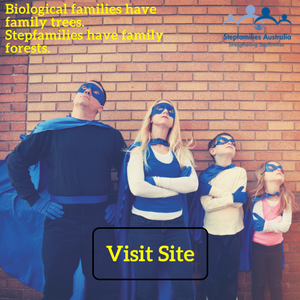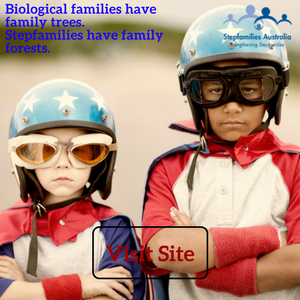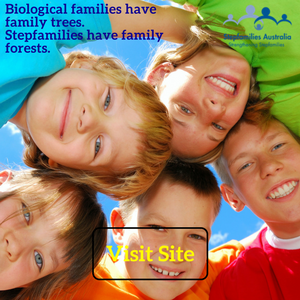We all know children are sponges and look to the adults in their life to show them how to relate to the world and the people in it. It is a BIG job!! From the early months of life children are watching and learning from the voices and actions around them. There is no one right way to show children what healthy relationships look like. Of course, relationships can look very different in different families and cultures – but a respectful relationship is always a SAFE one. That is the first and most important aspect of relationships that we can role model for children. Everyone in the family should feel safe – they should not be afraid that someone is going to hurt them physically or force them to do things or threaten them.
To achieve this, you might demonstrate for children that in your house:
- People DON’T CALL EACH OTHER NAMES
- People can show respect, by USING GOOD MANNERS
- In respectful relationships people KNOW WHEN TO WALK AWAY AND COOL DOWN
- In respectful relationships people LISTEN TO EACH OTHER
- When people respect each other, they DO NOT TRY TO CONTROL EACH OTHER.
So how does role modelling respectful behaviour help children?
- Couples who respect one another are more likely to support each other by cooperating when things get tough. They are also more likely to share the workload when they can, thus making life easier for everyone including children.
- Couples in respectful relationships still argue, but they try to resolve it quickly rather than let disagreements go on for days. Children learn that arguments are safe and normal but working through them is the goal. There are more happy times in families where respectful relationships are modelled by parents.

Research has shown that children who grow up in families where people treat each other with respect are less likely to have:
- Mental health problems (like anxiety and depression)
- Learning issues at school
- Trouble in their own relationships
- And tend to raise children who also behave respectfully.
There are some early risk factors that predict serious problems for families, INCLUDING children these are:
- Ongoing Relationship Conflict.
Everyone argues of course, especially when we are tired, but serious, threatening or chronic conflict can break a relationship down and impact your mental health.
- Financial pressures.
Raising children does involve some sacrifice. But if money worries are affecting your sleep, mental health, relationships or ability to parent then you need to seek some help. Call Money Help on ph: 1800 007 007 for free advice.
- Anger and violence.
When we are under pressure, situations can spin out of control. Anger is OK if it’s expressed in acceptable ways. There’s lots of support available to help people who feel angry during the transition period into parenthood. It’s not uncommon. Anyone who chooses to be violent needs to seek help to change and reduce the harm to the people around them.
- Problematic alcohol or other drug use.
If you can’t seem to make changes, go and see someone you trust for advice. This may be someone in your community, or a Community Health Centre or you can ring a Helpline (see our list of resources below).
Maternal Child Helpline – Available to Victorian families with children from birth to school age. Provides information, support and guidance regarding child health, nutrition, breast feeding, maternal and family health and parenting. Ph: 13 22 29
Parentline – Service providing telephone, counselling, advisory and information for parents and carers with children aged up to 18 years. Ph: 13 22 89 8am–midnight, 7 days a week
DirectLine – Provides free and confidential counselling, information and referral for alcohol and drug-related matters. 1800 888 236
The Men’s Referral Service – Offers a confidential telephone service provided for men by men. For men who want to stop their violent or abusive behaviour towards their family members. Women can also seek information and help for their male partner, husband, relative or friend.
Ph: 1300 766 491 or (03) 9487 4500 Mon–Fri: 9am–9pm
1800 RESPECT – Confidential information, counselling and support service- Open 24 hours to support people impacted by sexual assault, domestic or family violence and abuse. Call 1800 737 732 or call 000 if you are in immediate danger.
Women’s Legal Service – 8622 0600
Lifeline Australia – 13 11 14 – Crisis Support and Suicide Prevention.
Safe Steps – Provides crisis telephone support, information and referral to safe accommodation (refuge) for women experiencing violence and abuse in their relationships. 1800 015 188 or Ph: (03) 9322 3555 (24 hr)
INTOUCH – a leading accredited service, which provides services, programs and responses to issues of family violence in migrant and refugee communities. Email them at admin@intouch.org.au or call 1800 755 988
Wire Women’s Support Line – Provides support, information and referrals on any issues, such as family relationships and legal issues; domestic/family violence; housing and homelessness; emotional wellbeing; mental health – anxiety, fear, stress and depression; and job search, study options and community volunteering. Ph: 1300 134 130 Mon-Fri: 9am–5pm
Drummond Street Services – A service based in Melbourne, West and North Victoria that offers individual and family support, counselling around parenting, relationships, mental health and wellbeing for children, young people and adults. They can also connect you to the best support for you and your family ph: 96636733
Stepfamilies Australia – an online support service to strengthening step and blended family’s email: info@stepfamilies@ds.org.au
You may also like to read:








